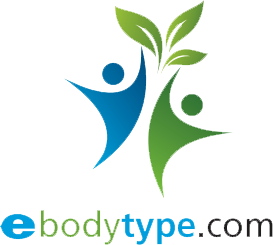Incredibly, vitamin C deficiency is an epidemic, particularly in the Western world. The consumption of fresh or garden-grown vegetation/fruit, the major contributor of vitamin C, is nil in Western populations. Fruit may appear fresh and have minimal or low vitamin C levels. Food processing and heating aggressively destroy this nutrient. Recent studies indicate that as many as 40% of Americans, …
Learn About Vitamin B-12
Vitamin B-12 is a huge molecule and is, thus, one of the most difficult of all vitamins to absorb. It is found only in animal foods. Vegetarians and macrobiotic adherents are notoriously deficient. As a result of impaired digestion and absorption, the elderly are also vulnerable to the deficiency. As many as one in three of all individuals over 55 …
Learn About Thiamine
Thiamine is essential for the function of the nervous system. It is also required for the metabolism of sugar and starch. The consumption of thiamine-rich foods has significantly declined and, thus, despite the fortification of foods with thiamine, the deficiency is virtually epidemic. Thiamine is readily destroyed by sugar and alcohol, as well as black/green tea, and this may also …
Learn About Riboflavin
Riboflavin is one of the most difficult of all nutrients to consume in the diet. It is found in large amounts in relatively few foods and is easily destroyed by sunlight and/or artificial light. Riboflavin deficiency greatly impacts the health of the internal organs as well as the skin. Having a mirror handy is essential for properly taking this test.
Learn About Pyridoxine
Pyridoxine, or vitamin B-5, is crucial for protein metabolism. All elements of protein function, from the digestion of protein to the building of muscle and skin, are B-6 dependent. The metabolism of fat, that is the essential fatty acids, including the fatty acids of the skin, is also B-6 dependent. This is why there are so many skin signs. When …
Learn About Pantothenic Acid
Pantothenic acid may be defined as the “power vitamin”, because it is needed for maintaining the strength of the mind and body. This is why fatigue and exhaustion are such common symptoms of the deficiency. A lack of this vitamin severely impacts a wide range of tissues and cellular functions. When you take this test it is a good idea …
Learn About Niacin
A deficiency of niacin exerts a profound negative effect upon human cells. This nutrient is the key substance for facilitating hydrogen ion transfer within cells. In its coenzyme form niacin attaches to hydrogen molecules and transfers them in the process of energy generation. Since a lack of niacin leads to metabolic failure, virtually all body systems are negatively affected. The …
Learn About Folic Acid
Folic acid is perhaps the most critical of all B vitamins. It is direly needed by the genes and chromosomes. This means that folic acid controls the proper function of every organ in the body. In particular, fast growing body cells, like the cells of the skin, hair, and intestinal walls, need folic acid for proper reproduction. Have a mirror …
Learn About Biotin
Biotin is one of the most important nutrients for fatty acid metabolism. It is also needed for the burning of sugar and starch into fuel and the creation of new protein. While the deficiency has a negative impact on all cells and organs, the signs are most obvious in the skin, which is highly dependent upon proper fatty acid nutrition. …
Learn About Vitamin K
Vitamin K is important mainly for coagulation of the blood. However, it is also a natural immune stimulant, and it is necessary for the strength of the bones and teeth. Vitamin K deficiency is likely to develop in the individuals taking repeated doses of antibiotics.
